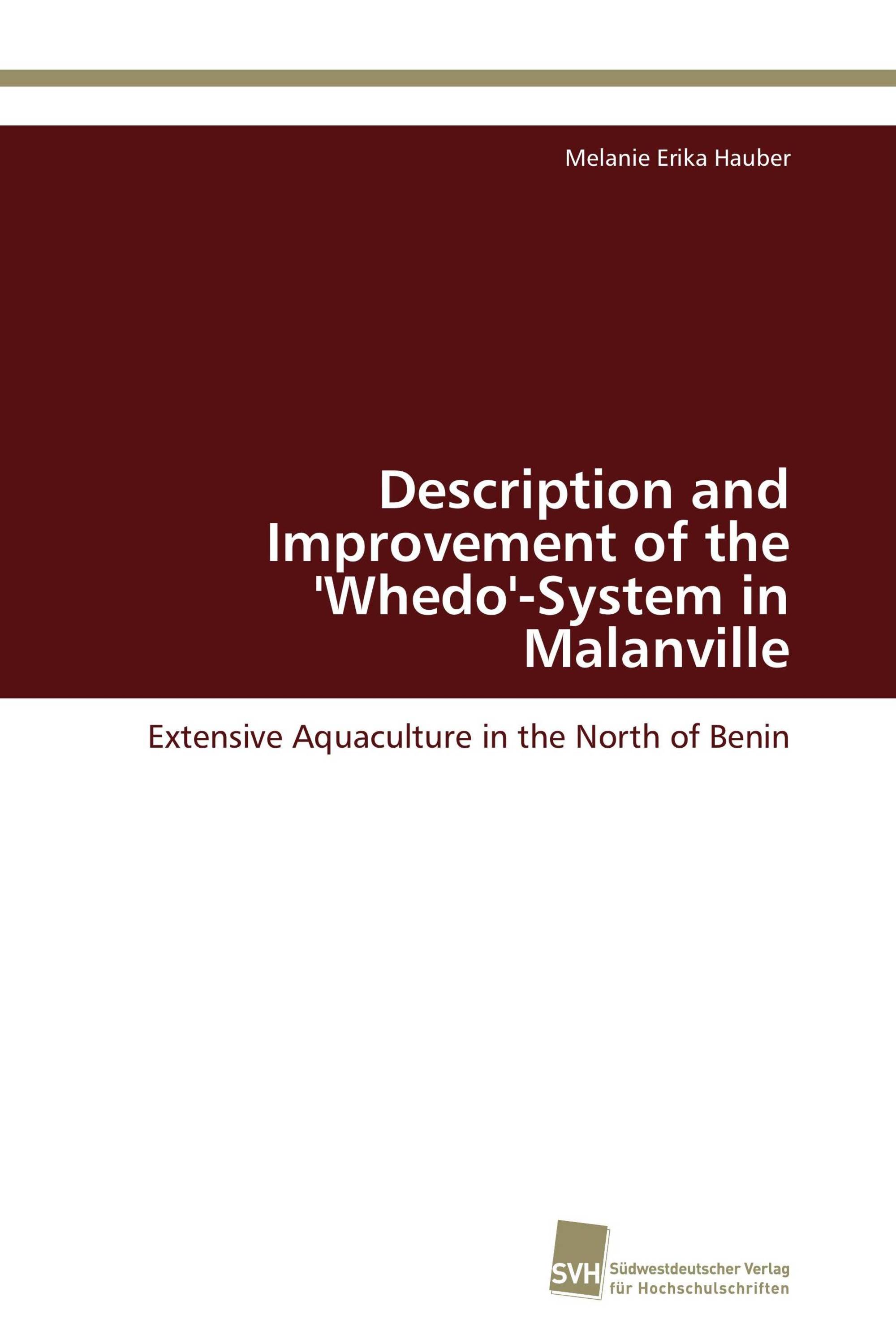Description and Improvement of the 'Whedo'-System in Malanville
Extensive Aquaculture in the North of Benin
Suedwestdeutscher Verlag fuer Hochschulschriften ( 16.11.2011 )
€ 79,90
Fish plays an important role in the nutrition of many African countries, but just to maintain current supply Africa needs an additional 1.6 million tons of fish a year by 2015. Thus, a crucial role in future fish supply has to be played by aquaculture. So far, the aquaculture sector did not develop noteworthy and the introduction of modern systems mostly failed. Thus, instead of introducing ‘new’ technologies it is important to build on traditional fisheries that have evolved in the social context. In Malanville (Benin) people take advantage of the floodplain by constructing ‘Whedos’ to trap migrating fish. The study focuses on the description of these fish holes including their ecology and seasonality. It provides a knowledge base on their management, economic and social determinants as well as traditional knowledge that should all be seen as key factors of any successful intervention. Since most problems in food security are regional and have to be addressed at the local level, further investigations aimed at the formulation of an appropriate supplementary feed to improve annual biomass production of the ‘Whedos’. Feasibility and profitability are discussed in this document.
Buch Details: |
|
|
ISBN-13: |
978-3-8381-2567-1 |
|
ISBN-10: |
3838125673 |
|
EAN: |
9783838125671 |
|
Buchsprache: |
English |
|
von (Autor): |
Melanie Erika Hauber |
|
Seitenanzahl: |
184 |
|
Veröffentlicht am: |
16.11.2011 |
|
Kategorie: |
Landwirtschaft, Gartenbau, Forstwirtschaft, Fischerei, Ernährung |

